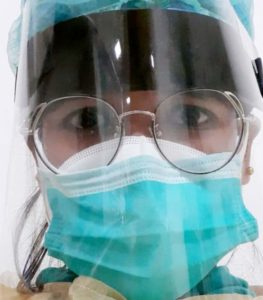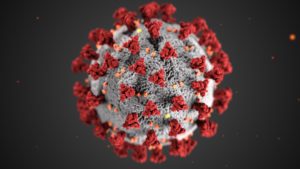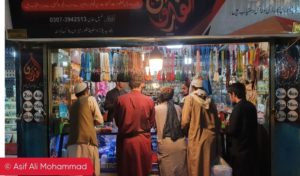In Pakistan, as in many other countries with high levels of inequity, the pandemic has further widened the gaps between advantaged and disadvantaged groups and stretched the social fabric to breaking point. The socio-economic determinants have shaped the impact of the pandemic, hitting vulnerable and marginalized groups the hardest.
HIVE Pakistan – an Islamabad-based social development organization that – boasts a vast youth network across the country. The networks operate in more than 40 cities of Pakistan involving social mobilizers for each community. Specific groups of people are reached for community engagement, relief and rehabilitation through dialogues and trainings. Before COVID-19 hit Pakistan, HIVE was running multiple campaigns on countering extremism and hate speech, women empowerment, inter-faith harmony, peace-building and social innovation through initiatives like Jinnah’s holographic screening, riskshaw art installations, and capacity building workshops and trainings.
Initially, Hive continued to carry out its local engagement activities in line with the emerged guidance on COVID-19’s precautionary protocols like maintaining social distance, washing hands frequently and using face masks and hand sanitizers. But by the end of March, a complete lockdown was announced in the country, which obstructed the social gatherings and community visits. As the reported cases of coronavirus kept increasing, the Government of Pakistan extended the lockdown a few more weeks past and the cases kept increasing which made the Government extend the lockdown for over a month. Travel between and within cities became difficult, schools and universities were shut down, and offices were advised to practice work from home, leaving only hospitals, pharmacies, and supermarkets open. Within days, all community-based outreach activities ground to a halt. Without the ability to have face-to-face interaction, small group discussions or community-based meetings, HIVE found itself in uncharted territory as these were all techniques and strategies that had been the bedrock of our past work.
HIVE Pakistan’s Project Coordinator commented, “Before the lockdown, we were organizing workshops and training sessions at our youth centers in Karachi but then we started receiving phone calls from parents of the participants. who were concerned about the safety of their children, so gradually we had zero attendance even before the lockdown started”, said Naheed Israr – Hive’s Project Coordinator. Similarly, Israr explained, “Our projects require community engagement events where people are invited to interact. Once during an event, the police came and asked us to call off the event. The local priest too couldn’t do anything about it.”
“Before the lockdown, we were organizing workshops and training sessions at our youth centers in Karachi but then we started receiving phone calls from parents of the participants. who were concerned about the safety of their children, so gradually we had zero attendance even before the lockdown started”Naheed Israr – Project Coordinator – HIVE PakistanSHARE10TWEET
Conferences, meetings and workshops with international partners were postponed and international flights were canceled. Our team struggled to find alternate ways of working that were embedded within the ethos of HIVE itself. Given the geographic spread of HIVE staff members– from Karachi, Hyderabad, Lahore, Islamabad, to Rawalpindi – the issue of internet connectivity came to the fore as team members based in Islamabad returned home considering the health crisis. These drastic changes led to a long process of negotiating and contemplating with partners (local communities and international partners) how to work around the challenges brought by Covid19. We switched to ways of working that involved minimal physical social interaction and instead focused on virtual and phone-based communications, together with new web-based tools. The online tools were used for outreach, trainings and communication. Hive is also about to develop its own software which aims to assist in efficient connectivity, documentation, streamline reporting and project updates. “We explored various tools available online and none of them addressed all of our needs, so we decided to create a new software as per our own requirements.” – Ali Zaidi, Executive Director of HIVE commented.
In light of the pandemic, communities were already struggling to meet their most basic needs and found themselves in a state of crisis. Due to the lockdown, communities and youth networks could not reach out to target areas as transportation and on-ground engagement became a health risk. This made us start a volunteer effort aimed to provide sustenance to families who had lost their sources of income due to the pandemic. We kick-started a campaign to adopt such families and in a matter of a few weeks, we were able to fundraise and help over 450 families and 2300 individuals. This effort is now a critical part of our broader community engagement strategy.
Our team continued tasks using online tools; interviews and trainings on Skype/Zoom and coordination through phone calls. “We send only one person to the ground if really needed and the rest of the team looks after online interaction. We trained all of our community outreach officers about preventive measures and during their interaction with community members, how they should sensitize them about the Coronavirus”, explained Umair Vahidi – Senior Community Engagement Officer.
The team also highlighted that given the already-existing unmet health needs that are prevalent in urban slum settings in Pakistan (for example malnutrition, drug addiction, poor mental health, cholera, TB), combined with the rise in Covid-19 related conspiracy theories, our community outreach revealed that the Coronavirus threat was not yet being taken seriously or acted on. Umair Vahidi stated, “Although there’s a 7 pm curfew in Lahore, we still need to be mindful of the severity of the virus as the general public is not taking proper protective measures; they are not following SOPs and don’t practice social distancing. Many believe in conspiracy theories that hold no grounds. It is up to us now; we embed preventive messaging with our traditional work.” Lower-income and marginalized areas of the country are highly unaware of the issue at hand. Locals are not taking the virus seriously. They assert that it is a scam and whoever goes to hospitals, would get infected with the virus.
Building on to this, Naheed Israr also added, “We are in a compromising position right now. We don’t want to be a reason to infect someone. It would take just a mobile phone created video for anyone to ruin the name of our organization and therefore, we have to be extra careful.” Our community engagement coordinator, Mohsin Ilyas reported the situation of an informal Christian settlement in Islamabad, “If you come to our area, you would question the existence of Coronavirus. Since the first day, people have not taken it seriously for a single day. It’s a slum area, there are 10-12 people in every house, and people are socializing as nothing happened.”
HIVE Pakistan has learnt some very valuable lessons in the wake of Coronavirus. One, we should always consider the need of communities we work with on a priority and not the deliverables we think would serve them best. Even though the organization was already working along these lines, the priority really changed in terms of raising awareness and providing lower-income communities with preventive gears. Two, communities that suffer from an intersection of issues should be collaborated with in a holistic manner as singular approach lacks ownership and interest of communities. Three, we as community development practitioners should find innovative ways to work around emergencies—including finding solutions that are bio-secure to ensure safety of the public and our staff. Four, in a big crisis there is an urgent need to build the capacity of community-focused organizations on the issues at hand so they can embed their work with methodologies to mitigate the crisis.
In the light of the aforementioned points, HIVE Pakistan intends to prioritize the use of online technology as a means of communication with online partners. This would also include giving importance to bio-safety trainings and awareness sessions on health, hygiene, eating habits and physical fitness.



